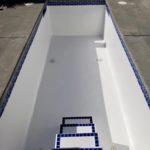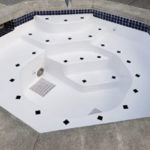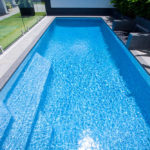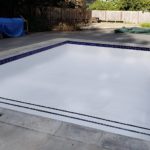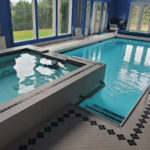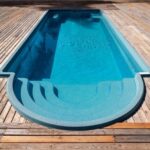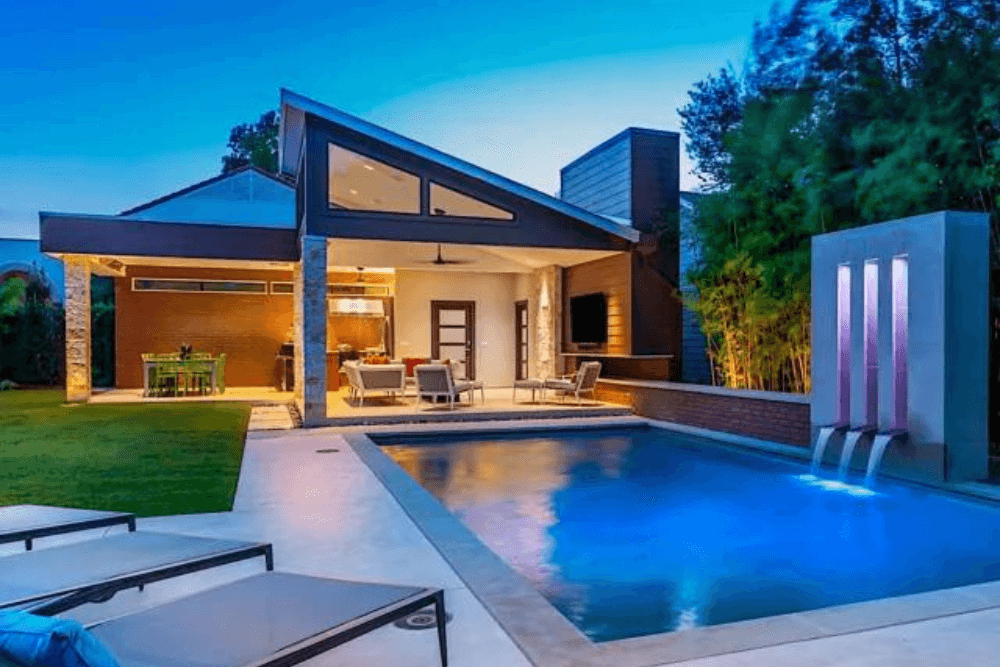
There are currently several pool resurfacing options available in the market. However, to make the best decision for your pool surfaces, you need to weigh in your options into helpful categories such as durability and longevity.
Glasscoat and plaster are two of the most common types of coatings used for pool surface enhancement, providing both protection and aesthetic appeal for interior and exterior pool surfaces.
Glasscoat is a high-performance polymer glass-fiber coating that enhances durability, offering a glossy, smooth finish while resisting UV rays, scratches, stains, spalling, cracks, and corrosion.
It is commonly applied to painted fiberglass, aluminum, concrete, and steel surfaces, using advanced technology to ensure long-lasting care and reduced maintenance.
On the other hand, plaster is a widely used material that creates smooth, visually appealing pool surfaces, making it a budget-friendly choice for improving the aesthetic of a pool.
While plaster provides a protective layer, it requires periodic maintenance to prevent discoloration and surface wear. Both coatings have unique benefits, and choosing the best option depends on factors such as durability, installation, protection, and long-term maintenance.
Consulting with a professional can help determine the most suitable choice for your pool’s enhancement and overall performance.
| POOL SURFACE TOUCHPOINT | GLASSCOAT | PLASTER |
|---|---|---|
| START-UP | The start-up process is simple because the material quickly cures, does not need consistent brushing. | The start-up process is complicated since it requires intensive attention and consistent brushing. |
| DURABILITY | It provides superior coating strength preventing possible corrosion. The natural strength of glasscoat ensures durability. | Durability depends on how the material was applied. Plaster is prone to dis-bonding and chipping due to poor adhesion. |
| WARRANTY | Provide more substantial warranty coverage. | Offers limited warranty coverage. |
| LIFESPAN | The coating is expected to last for 30+ years. | Lifespans depend on several factors including, maintenance, plaster mixture, water chemistry, and application method. The average lifespan is 5-8 years. |
| AESTHETIC APPEAL | Aesthetic appeal is easily maintained due to its resistance to stains. | The aesthetic appeal may lessen due to stains and deterioration. |
| WATER CHEMISTRY | Tolerates imbalanced water chemistry. | Sensitive to imbalanced water chemistry. |
| CHEMICAL USAGE | Reduce the use of chemical use due to the inert component of Glasscoat, and it also makes pool chemicals more efficient | It requires a high demand for chemical usage because the surface is reactive. |
| ALGAE RESISTANCE | Due to the smooth, non- porous, and dense surface finish, it prevents algae from cohering. | Since plaster is a porous finish, algae can easily adhere to the surface. |
| STAIN RESISTANCE | Glasscoat provides a stain-resistant easy to clean surface. | Low resistance to stains even after application. |
| ROUGHNESS | Gentle to feet since it provides a smooth finishing. | As plaster ages, the roughness of the surface also increases. |
| STRUCTURAL CRACKS | Prevents pool cracks by adding structural strength to the surface. | Easily shows some cracks and leaks if the pool has substantial movement. |
If you are considering glasscoat for your swimming pool surfaces in Las Vegas, NV, and want to learn more about this choice, don’t hesitate to call us at (702) 710-5883 for a free, no-obligation quote.
Our experienced team is ready to answer any questions you may have about our services, including pool plaster, quartz, and other finishes for swimming pools and spas. We understand the importance of maintaining the appearance and service life of your pool, ensuring that it remains a beautiful and durable space for you, your friends, and your family to enjoy.
As a trusted company serving Las Vegas, Nevada, we take pride in delivering top-quality service that enhances both the look and longevity of your pool. Our solutions are designed to resist wear and protect against the damaging effects of pool water, helping you avoid costly repairs and frequent maintenance.
Whether you’re a homeowner or a business, there are many reasons to choose us for your pool surface needs. We guarantee a seamless experience without the hassle of tear-out or major renovations, providing long-lasting results that elevate the beauty and functionality of your pool.
